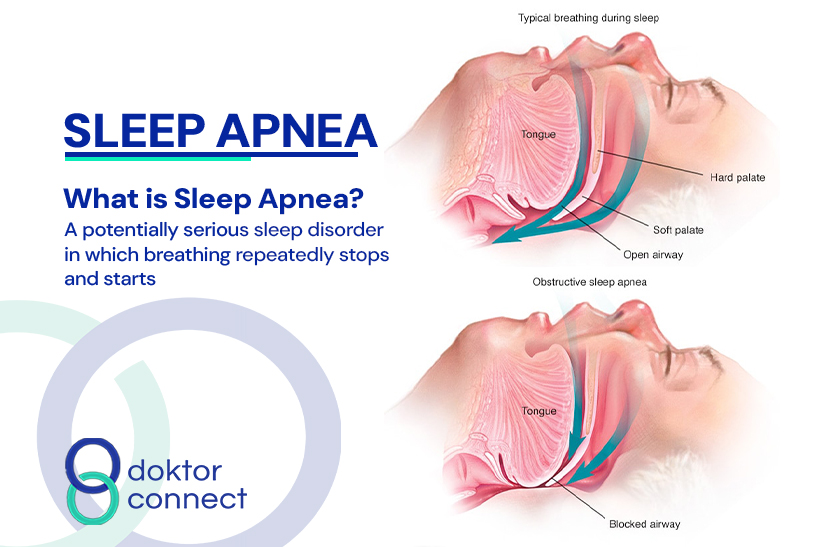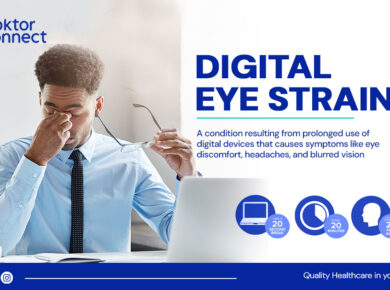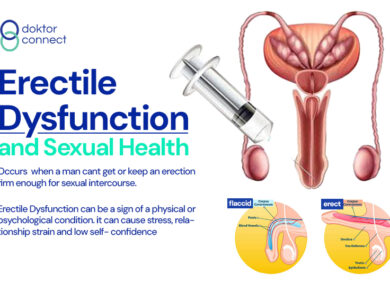When “Just Snoring” Is Something More Serious
If you or someone you love snores loudly, wakes up gasping for air, or feels exhausted no matter how long they sleep. It might not just be fatigue. It could be sleep apnea, a condition where breathing repeatedly stops and starts during sleep.
It’s more common than you think and far more dangerous than it seems. Untreated sleep apnea doesn’t just cause daytime sleepiness; it can increase your risk of high blood pressure, diabetes, heart disease, stroke, and even depression.
What Exactly Is Sleep Apnea?
Sleep apnea is a sleep-related breathing disorder where airflow stops temporarily due to airway obstruction or improper brain signals.
The two main types are:
-
Obstructive Sleep Apnea (OSA): The most common type, caused by throat muscles collapsing during sleep.
-
Central Sleep Apnea (CSA): The brain fails to send proper signals to the muscles controlling breathing.
-
Some people experience mixed apnea, a combination of both.
Why It’s on the Rise
Modern lifestyle habits are fueling the increase in sleep apnea cases:
❌ Weight gain and poor diet
❌ Alcohol consumption before bed
❌ Sedentary lifestyles and poor sleep hygiene
❌ Increased stress and disrupted circadian rhythms
❌ Overlooked snoring and undiagnosed cases
Signs and Symptoms You Shouldn’t Ignore
✅ Loud, chronic snoring
✅ Gasping or choking during sleep
✅ Morning headaches
✅ Daytime sleepiness or fatigue
✅ Poor concentration or memory issues
✅ Mood swings, irritability, or low libido
✅ Waking up with a dry mouth or sore throat
If these symptoms sound familiar, it’s time to take them seriously. Many people with sleep apnea have no idea their breathing stops dozens or even hundreds of times a night.
Complications of Untreated Sleep Apnea
Leaving sleep apnea untreated can lead to:
-
High blood pressure and heart disease
-
Type 2 diabetes
-
Stroke and cardiac arrhythmias
-
Chronic fatigue and lowered productivity
-
Reduced testosterone and sexual dysfunction
-
Increased risk of accidents due to sleepiness
Diagnosis and Treatment
🩺 Diagnosis
Sleep apnea can be confirmed through a sleep study (polysomnography) by a medical professional or home-based monitoring that tracks oxygen levels, breathing patterns, and snoring episodes.
💊 Treatment Options
-
Lifestyle changes: Lose weight, avoid alcohol, sleep on your side
-
CPAP therapy: A continuous positive airway pressure machine keeps airways open
-
Surgery: For severe cases or structural obstructions
Prevention & Daily Management
🌙 Maintain a regular sleep schedule
🏃 Stay active and maintain a healthy weight
🚫 Avoid sedatives and alcohol before bed
💨 Keep nasal passages clear
🛏️ Elevate your head while sleeping
Final Thoughts
Sleep apnea is a silent but serious condition that steals your rest and strains your heart. The good news? With awareness, early diagnosis, and the right tools, it’s completely manageable.
🌙 Take control of your sleep and your health
That’s where the DoktorConnect Sleep Monitor comes in.
It’s a smart, easy-to-use device that tracks your oxygen levels, snoring, heart rate, and sleep quality in real time, giving you insights you can share directly with your doctor.
It’s not just another gadget. It’s your first step toward better sleep, better energy, and better health.
👉 Start monitoring your sleep today with the DoktorConnect Sleep Monitor just because good sleep isn’t a luxury, it’s a lifeline




